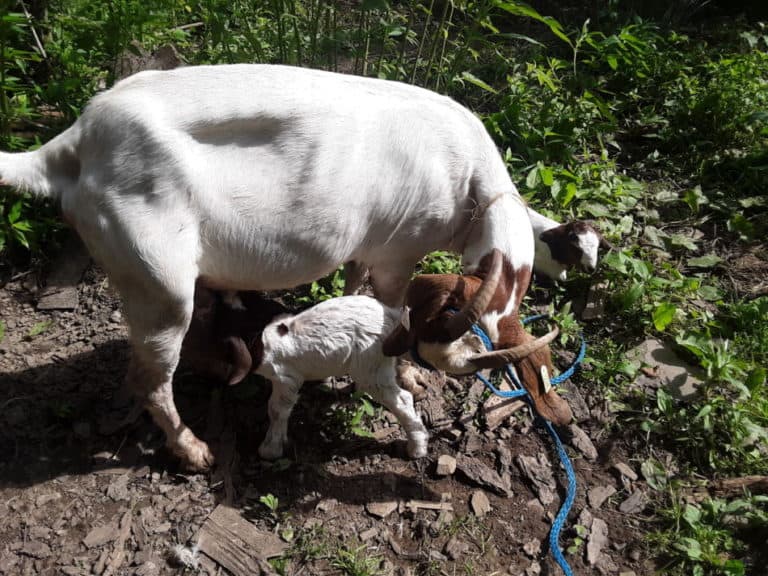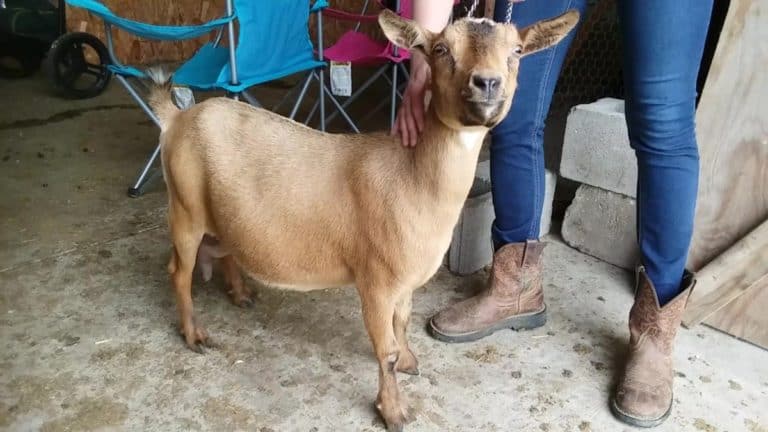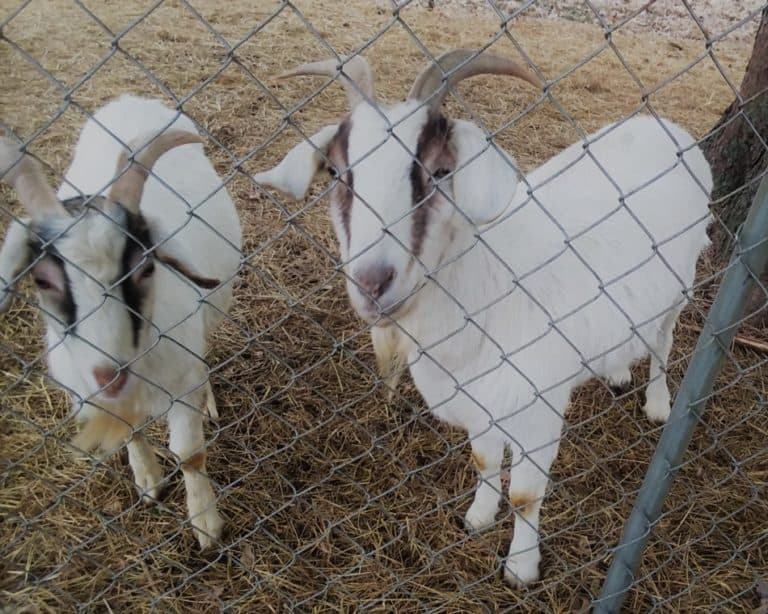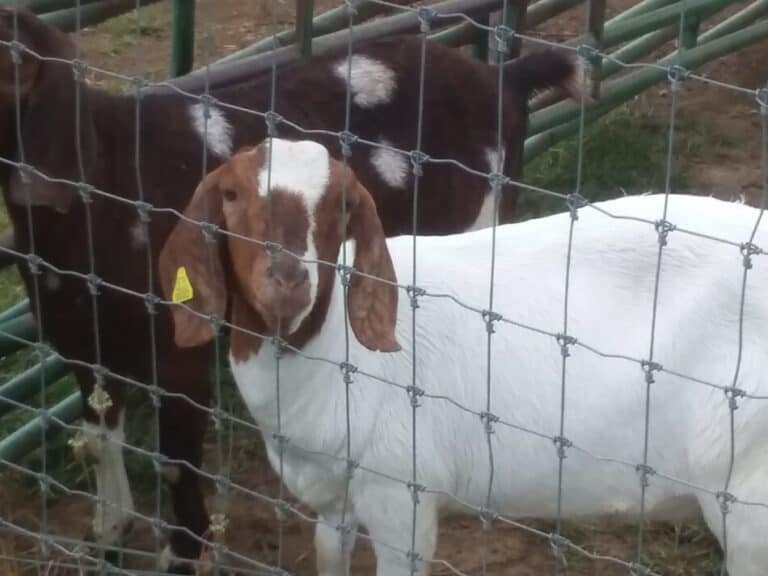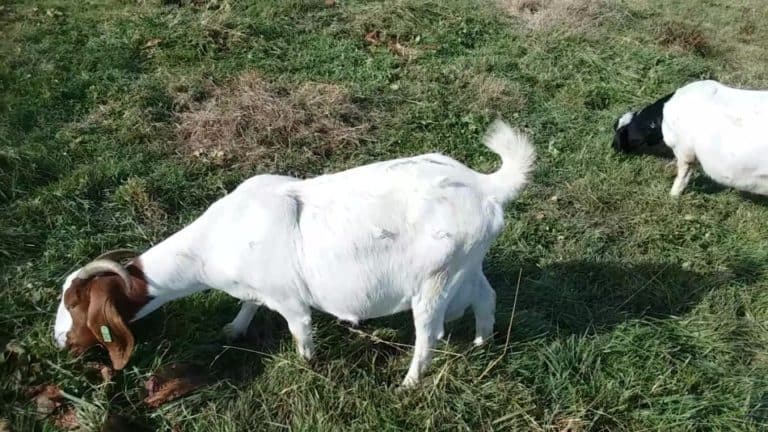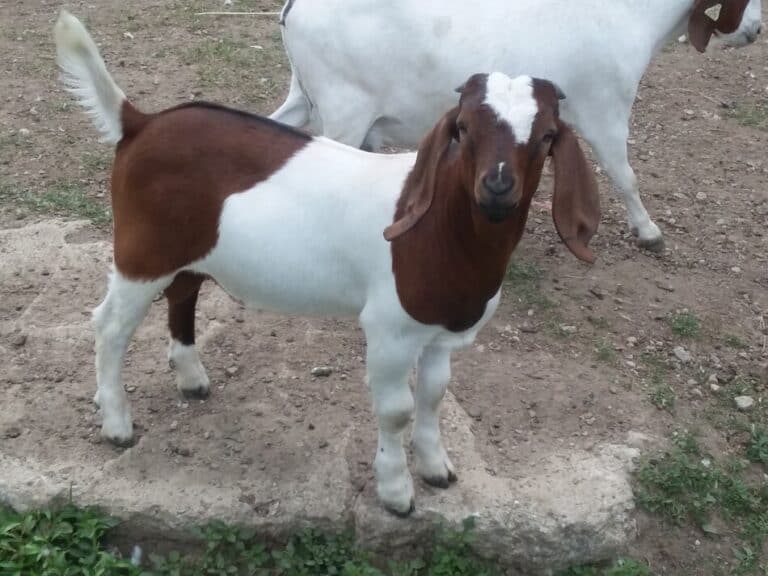Best Breed Of Meat Goat For Beginners
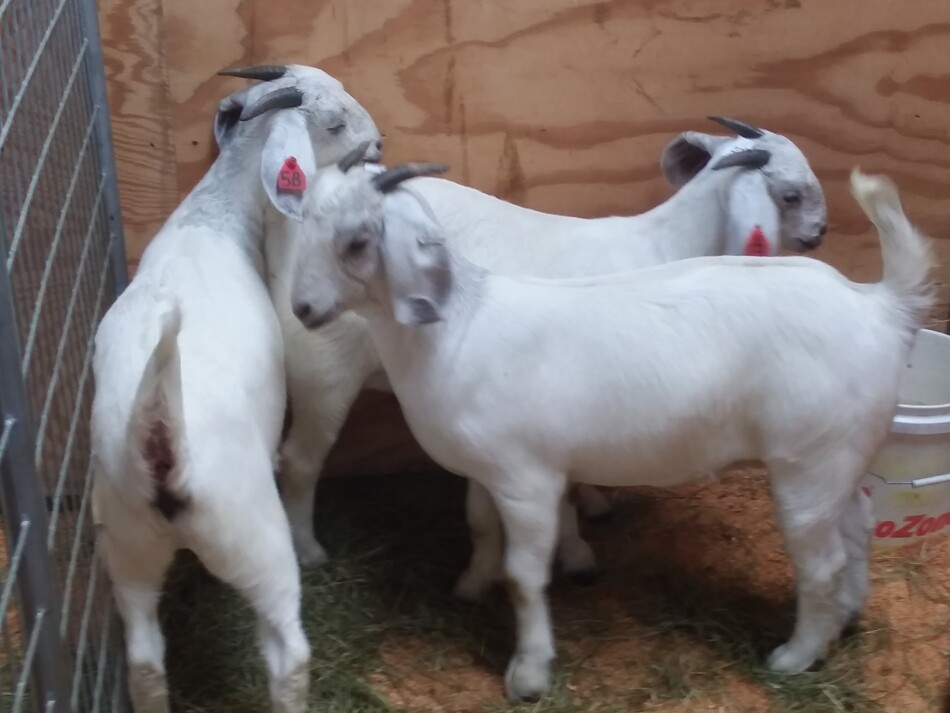
When you are looking for meat goats, there is a ton of confusing information out there.
How do you find goats that you’ll be happy with that are truly the best breed for you?
The best meat goats for beginners are from herds that are in your area, being raised the way you plan to raise your goats.
There are two ways to figure out which goats will work best for you. The first way is easy the second more involved.
We’ll start with the easy way to find goats.
What Will My Goats Sell For? shows you how to figure out the current selling prices for market goats in your area.
If you want the more complicated answer to finding the right goat breed for you, skip to Know your main purpose for raising goats.
NOTE: I won’t be telling you specific goat breeds, that would be a disservice to you!
The breed or cross of breeds that works best for you depends so much on your area and your management.
Take a little time and work through this article, you and your goats will be glad you did!
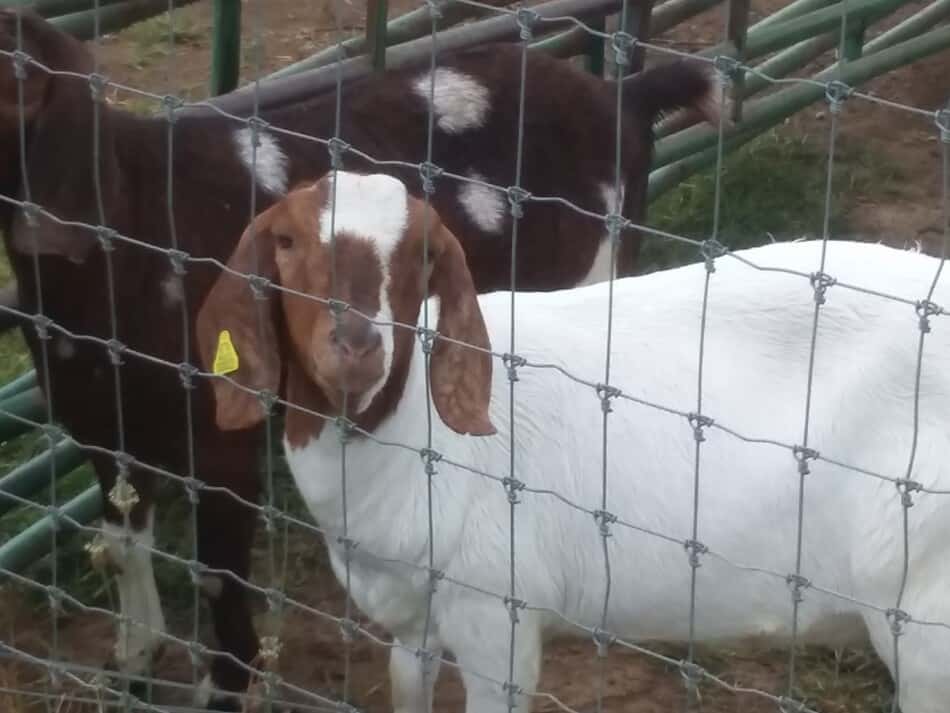
The best meat goats for you are local
Here’s the easy answer to finding the meat goats you should raise: look around and ask around your area.
- Find a breeder who is happy with his or her goats
- Look at the goats, if you like them:
- Buy some of those goats and be happy, too.
This may sound a bit simplistic, but really this is the best way to get started with goats.
These goats could be purebred or crossbred, it doesn’t matter.
The important part is that you like the goats and are willing to mimic the care they are currently getting.
Buying local is best, for you and the goats
When the local goat breeder is happy and her goats are happy, she has goats that fit her area and management.
As long as you are willing to do what she does with and for the goats, these goats are your best shot at getting started with a herd that will work well for you.
Not to mention, you’ll have someone you can talk to about goat challenges and give you advice when you need it. That’s valuable!
If the local goats are not a match for you, dig deeper with your search
If you don’t like what this breeder has or you don’t want to care for your goats the way she is, you’ll need to read below and start widening your search.
Here are a few examples of fitting your goats to your area and needs, to get you thinking about what you need in your herd:
Example 1: if all of the local goats are show stock and you want a super easy care flock of brush eaters, you’ll need to widen your search.
Nothing wrong with show goats, they just do not fit you, since you said super easy care.
Example 2: going with all of the local goats being show goats, but this time you just want some goats for the fun of it.
Every show flock has animals that are nice but not show material, a few of these goats may be just what you are looking for.
These goats will probably need grain and some babying, but if you’re okay with that, give them a try.
Goat Feeding And Nutrition goes over your options for meeting the nutritional needs of your herd and how to tell if you are on target or not.
Know your main purpose for raising goats
For anyone wanting more specifics on selecting meat goats or who didn’t find any matches locally, here we go!
First off, you’ll need to know your main purpose for raising the goats. I know you are thinking “meat goats, that’s what the title says”.
True, this is about meat goats but there is more to consider here, a lot more.
- What are you willing to do with the goats to keep them happy?
- How much work are you planning to put in to the herd to keep them fit and growing well?
- What is the end purpose of your goats, are you selling the kids or raising meat for yourself?
- If you are selling the goats for market kids, what does your market want? Customer wants and needs vary tremendously through out the country.
It’s also important to realize the ideal goat for you could easily be a crossbred goat or a different breed of goat than the one you had envisioned at the start.
Don’t get hung up on breed, get hung up on characteristics and results that you need for your goat enterprise.
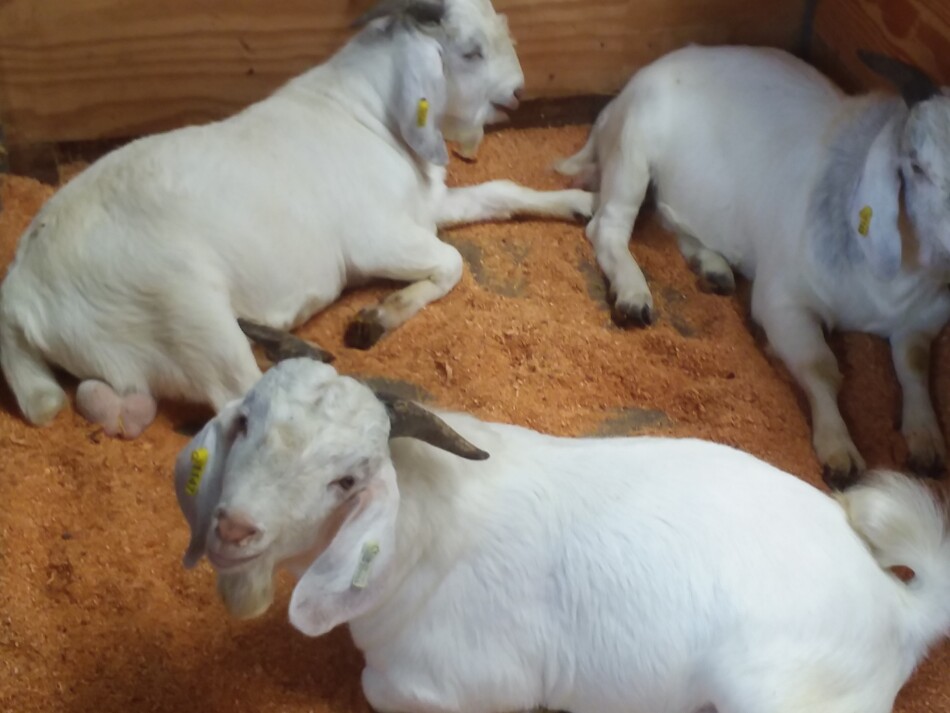
Consider how much management you are willing to put into your goats
Depending upon what goats you buy, you may need to do things like hoof trimming, assist with births, help get kids started nursing, feed grain, etc.
How much of this type of work are you willing to put into your goats?
Some folks are willing and happy to do all kinds of work with their goats, others want to keep the additional care to a minimum.
Please understand that there is no right or wrong answer here. It’s more about matching your idea of raising goats to what the goats actually need.
From what I have noticed, there seem to be two camps that people fall into with regards to goat breed of choice:
- Low management herds
- Specific result herds
Low management goats need less special care
The low management herds are folks who want the goats to do most of the work themselves, they don’t care about looks or size.
The main criteria here is easy to have around goats and whatever shape, size or productivity level that comes with is okay.
For clarity, all goats will need some care!
There is no such thing as a care free or management free goat, but there are some that take much less work from you than others.
Sheep Or Goats: Which One Is More Profitable? shows you how to figure up which one will be a better fit for you and your farm.
Specific goat breeds have specific needs
The specific result group wants to raise, Boers or Kikos or whatever.
Meaning these folks want the breed they want are willing to do what it takes to make those goats work for their area.
These goat owners are choosing looks or breed over all other considerations, like management or what sells well in the area.
Once again, there is no right or wrong here, just a different way of looking at the main purpose for getting goats in the first place.
Know the type of goat that sells well in your area
If you are thinking of raising meat goats to sell market kids, this is a biggie. You need to know what the buyers in your area want.
In our area, goats that are obviously Boer (or Savanna) or a high percentage Boer cross sell for significantly more money than any other goats.
Kiko type goats do not sell nearly as well at the weekly auction. I know in some areas Kiko are the preferred meat goat, but here, that’s not the case.
I left out Myotonic goats, which should really be included with Boer and Savanna as meaty goats, because the Myotonics in our area are the smaller, pet type, not the meaty, market type.
This is where going to the auction, or knowing what the local goat eating population wants really matters to your bottom line.
If you are raising goats for yourself, then, good news, you can raise what you want! Pick something that makes you happy and get started.
If your plan is to raise goats that other people want, now you need to do some research and figure out what our customers want and don’t want.
Example 1: for a goat meat business, in our area Boer is king. Right or wrong, these goats and kids sell for significantly more than other meat goats.
There are die hard Kiko raisers around here that feel people are crazy for raising anything but a Kiko.
I completely understand what they are saying, with easy care being one of the main selling points of Kiko breeding stock.
But when it comes to selling meat, the buyers around here do not like Kiko genetics nearly as much as they like, and more importantly are willing to pay for, Boer.
Example 2: another peculiarity in our area, any goat that is short or short legged does not sell well.
I think the buyers view these goats as crosses with Pygmy or the pet type Myotonics.
Even if your goats are meaty, for some reason being short lowers the price buyers are willing to pay.
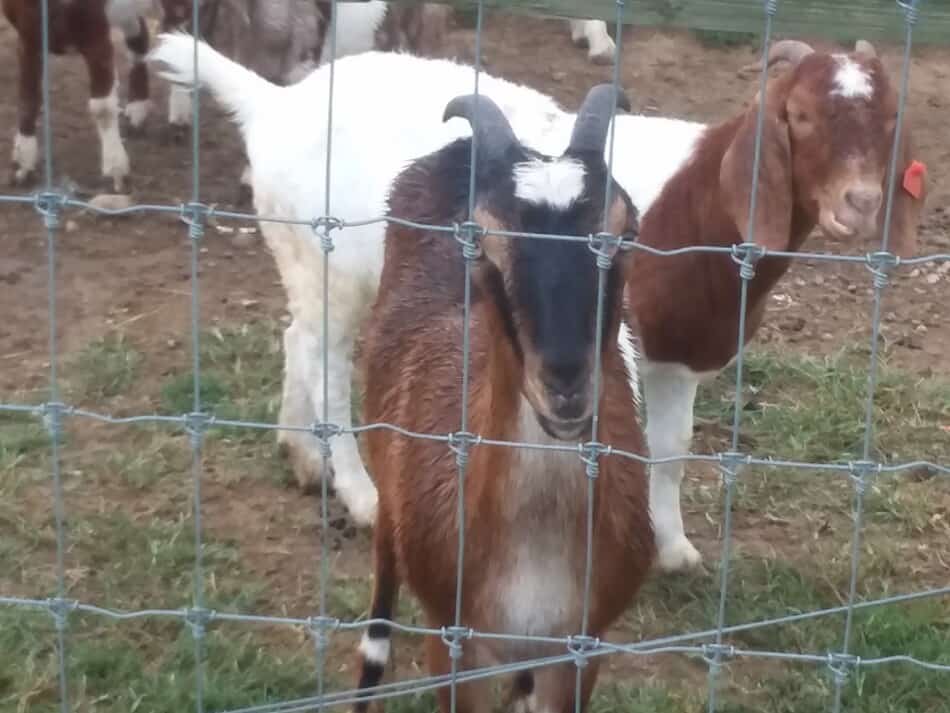
Consider your resources and area for the goats
Your goats will do the best for you if you match your resources to the needs of the goats.
Do you have a lot of brushy growth or non grass edibles for your herd? Remember, it’s sheep that are grazers (grass eaters), goats are browsers, more like deer!
Another biggie is climate, as in how wet and or cold is your area? Goats are built for dry and warm areas, not wet or cold.
Goats hate cold, since they do not have an external layer of fat, like cattle or sheep, that would keep them warm.
Goats also do not perform well in wet areas, this is mainly a parasite problem.
Match the goat breed to your area
So many good people get the new cool breed of goats then are disappointed with how their goats do for them.
This is because you did not match the characteristics of the goats to your area.
If you want to do minimal management with your herd, get your starter herd from someone that is managing the goats the way you plan to manage them when you get them home.
Here’s an example: if you do not want to feed any grain, get goats from a farm as locally as possible that does not feed grain.
What do these goats look like? Doesn’t matter, you have chosen a different priority than looks, you picked no grain.
Example 2: if you want a certain breed of goat, you’ll need to do whatever the farm you got them from is doing to keep the goats in that condition.
In this case you have chosen looks over all other traits.
This means you are willing to do what ever it takes to keep these goats in good condition, including extra management or inputs.
This is fine, as long as you realize what you are choosing.
Example 3: easy care goats, you want to check on them twice a day and the rest of the time they take care of themselves.
No midnight kidding checks, no hoof trimming, none of it.
In this case you are choosing whatever body type ends up working for your area.
Be aware you are also choosing to lose some kids, since you are going with the survival of the fittest plan.
Slowly make changes to your herd management
If you find yourself needing a different goat than you can find, you’ll need to change the management of the goats you get to match what you want.
Go slowly with your changes.
Each change in management will require culling out the goats that don’t make the cut.
This is a long and possibly costly process that requires years of sticking to your guns and culling for anything you find unacceptable.
Even if it’s your favorite doe that needs whatever you have decided not to do, she has to go.
Or when your “best idea ever” breeding produces a sub par buck, the one you have all of your plans based on. He has to go, and as a wether, not a buck.
This is the game of breeding stock selection and production. It is fun, but also challenging.
You never know what you’ll get, even from matings that produced great kids last time. It’s always a give it a try and see what you get deal.
This is what makes livestock so interesting, but also what makes high quality breeding stock worth the extra money.
You’re paying for all of the year’s of trial and error until the traits you see started reliably showing up.
Don’t let this scare you off of trying, genetics are fascinating! I just want you to know what you’re getting into.
For instance: if you want to keep only does that have unassisted births, then you’ll need to cull out any that require your help.
Some stockmen advocate letting them naturally cull themselves, this means letting them die.
I don’t agree with that idea. I know you can’t save every kid, but for your own sake as well as the goat’s, you should try.
Let me be clear, I don’t think you should keep the goats that require more management than you are willing to put into them.
To let them weed themselves out means you put all of the time and money needed up to this point into those goats and you are getting nothing to show for it.
However, if you give the extra care, help with the birth, pen the doe and babies together for the first few days, or whatever, then you’ll have something to sell later.
If you give no extra help, you do not get the money from the kids you would have to sell if you are willing to put in the time.
Once again, cull out these needy goats, but at least sell them so you get the money to put into goats that are working for you.
The best goat site I have found is TennesseeMeatGoats.com. Click around, it’s definitely one to study!
